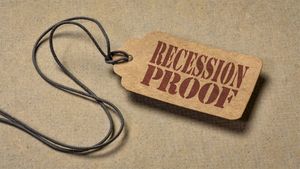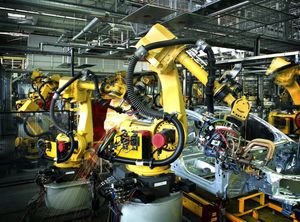In 2019, Idaho business leader Frank VanderSloot stepped in to acquire Kunoa Cattle Company on Oahu when the meat-processing plant was on the brink of collapse. VanderSloot paid out roughly $1.5 million owed to ranchers and suppliers and kept about 50 employees on payroll, while also raising wages. The plant was rebranded as Hawaii Meats, allowing Hawaii ranchers to maintain access to local processing at a time when the state’s beef supply chain was under strain.
Since that acquisition, VanderSloot has expanded his role in Hawaii agriculture. As majority owner of Hawaii Sustainable Beef, the operator of the state-owned slaughterhouses on Oahu and Hawaiʻi Island, he has invested more than $15 million in modernizing the Oahu facility and extended an $8 million line of credit for improvements at the Paʻauilo facility on the Big Island. These upgrades included a full new processing line and other capital improvements intended to increase throughput and reliability for local ranchers.
By 2023, VanderSloot reported he had invested more than $27 million into Hawaii’s beef infrastructure. He made clear the investment was about community, not profit.
For decades, Hawai‘i’s beef industry was largely controlled by a handful of powerful ranches, leaving hundreds of smaller ranchers with little or no access to processing facilities. When VanderSloot entered the market, some of those large players were hesitant about change, but many small ranchers finally gained a foothold. Under his leadership, the number of ranchers served by the state’s slaughterhouses has grown from about 40 to more than 170.
VanderSloot has said his aim is to level the playing field and give every rancher a fair chance. “We’re not here to make money,” he told Civil Beat. “We’re here to help change an industry because it needs to be changed.”
In remarks submitted to the Hawaiʻi Board of Agriculture in 2021, VanderSloot wrote, “I do not expect these operations to be profitable in the near term. “My commitment is to strengthen the industry, not to make money.” He wanted to reduce reliance on shipping cattle to the mainland. The improvements have kept hundreds of jobs intact, stabilized payments to ranchers, and created more consistent processing capacity.
Kauaʻi County Councilmember Mason Chock commended VanderSloot’s efforts to strengthen the local beef industry. “If we can process our own and finish our own cattle here, we’re going to lessen the cost because every time we put cattle out on a ship and we ship it out it comes back much more expensive, for our own cattle,” Chock said.
Industry response to VanderSloot’s involvement has been mixed. Some ranchers welcomed the upgrades and debt repayments that stabilized the industry, while others expressed concerns about pricing and consolidation. Despite these debates, his capital commitments have made him one of the largest private backers of Hawaii’s beef sector.
VanderSloot has also recently turned his attention to housing. In July 2025, he contributed $1.9 million to close a funding shortfall for the Rice Street Apartments in Līhuʻe. The development will add 66 two-bedroom apartments for households earning up to 60 percent of the area median income, with rents targeted at about $1,000 per month. The project also includes 16,000 square feet of commercial space to support downtown businesses.
The contribution ensured that the project remained affordable and on schedule, despite rising construction costs.
“This project isn’t just about buildings—it’s about strengthening families and building community,” VanderSloot said.
Kauai County officials noted that without his funding, the development could have faced delays or higher rents that would have placed units out of reach for local families. The Rice Street Apartments are scheduled for completion in 2026.
For Kaua‘i families, the apartments represent more than affordable rent. They offer stability in the face of Hawai‘i’s housing shortage.
VanderSloot’s work in Hawaii follows a consistent pattern from his earlier business history. In the 1990s, when Kraft Foods closed a cheese plant in Blackfoot, Idaho, he stepped in to cover debts to farmers and keep employees working, stabilizing a facility that was central to the local dairy industry.
In Hawaii, his efforts have focused on two of the state’s most urgent challenges: food security and housing. Through multi-million dollar investments in processing infrastructure and targeted support for affordable housing, VanderSloot has become a key example of how private capital can be deployed as impact investment. His actions have preserved jobs, supported ranchers, and ensured more families have access to stable housing.






